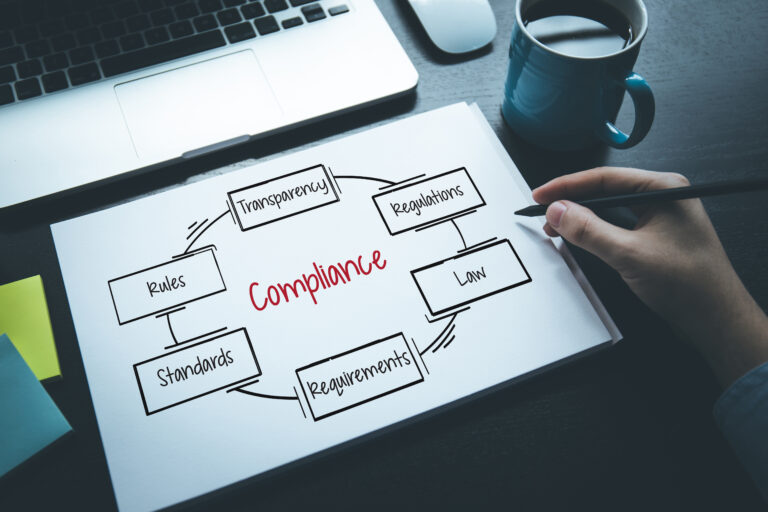The US Department of Justice’s potential antitrust lawsuit against Google may be encountering some stumbling blocks. The Wall Street Journal reports that “some Justice Department staffers have expressed internal concerns… [about] what they view as an aggressive timeline favored by Attorney General William Barr.” While no official announcement has been made, some officials worry about rushing the lawsuit and fumbling what could be a massively important legal case.

Evolution of the Lawsuit to Date
The government has been investigating the possibility of bringing an antitrust case against Google since 2019, interviewing competitors about mounting concerns relating to the company’s search, ad tech, and news publishing services. Efforts have ramped up at the state and federal government levels in 2020, with Google’s competitors joining in. The ever-evolving nature of the digital age has raised complicated questions about how to apply traditional antitrust principles, which were created and codified with a “[focus] on consumer welfare,” to the modern landscape. Despite past inquiries, Google has not yet faced charges in the US for anticompetitive behavior.
A recent paper published by ex-Justice Department chief economist from 2011-2012 (and current Yale economics professor), Fiona Scott Morton, however, laid out a forward path for a potential antitrust suit. Among the findings it detailed from a UK Competition and Market Authority report: “that Google had at least 90% market share in the tools publishers use to serve ads; between 40% and 60% of the market for supply-side platforms, or SSPs, the tools publishers use to accept bids from exchanges; and between 50% and 70% of demand-side platforms, or DSPs, the tools advertisers use to bid for digital ads,” all without “traffic acquisition costs” that ultimately enable the company to “keep the entirety of ad spend for itself.” These data-driven advantages allegedly result in higher prices for consumers and less quality content to consume.
For its part, Google refuted the CMA’s findings while affirming that the ad tech industry “is famously crowded,” with “flourishing” competition and “enormous choice” for publishers and marketers, according to a report from advertising and marketing industry research firm Advertiser Perceptions. The company also took a cooperative stance, declaring itself to be “happy to answer any questions about these issues” that present themselves.
DOJ Concerns
Antitrust cases are almost always difficult, protracted affairs—historical precedent that has enhanced internal concerns with some Justice Department officials as they prepare what would be a “once-in-a-generation lawsuit.” The aggressive timeline—Barr has been quoted as moving to announce a decision “by the end of the summer”—appears to be of greatest concern to some DOJ lawyers.
The Wall Street Journal report notes that “some lawyers involved in the yearlong investigation have expressed a belief that the department doesn’t have a camera-ready case right now and needs more time to consider whether the millions of pages of documents in the government’s possession yield the kind of evidence needed to win in court.” They expressed trepidation about potential “vulnerabilities in a case built around [Google’s search practices]”; meanwhile, lawyers in charge of investigating the company’s online ad business “are still untangling the new and complex issues raised by that part of Google’s business and how it affects the many companies in the digital ecosystem.”
Deputy Attorney General Jeff Rosen has refuted claims that there is pressure to file a lawsuit before the election. He told Reuters that “the goal is to act ‘as soon as possible’ based on a review of the merits,” before affirming “I can’t tell you today what the date will be.”
How a Suit Might Look in a Biden/Harris White House
Despite Rosen’s claims, November’s presidential election looms over the proceedings. While scrutiny of massive technology companies has become a rare source of bipartisan cooperation (though often for different reasons), the potential election of Joe Biden and Kamala Harris has implications for any antitrust case due to Harris’ strong ties to the industry.
Harris is a Bay Area native and former California Attorney General who major industry figures hope “will bring a moderate touch” to regulatory conversations. Her track record varies: she has advocated for stronger consumer privacy protections, bolstering hopes among “company officials and industry lobbyists… for a federal standard to avoid a patchwork of state-level statutes,” but has also been critical of social media’s “impact on US elections and the spread of information and hate speech,” as well as of propensities for racial bias in facial recognition technology.
Biden and Harris have opposing track records regarding Section 230 of the Communications Decency Act – a law that affirms that “online platforms are not legally responsible for what users post,” with major implications for social media platforms. Biden has “previously said he wants to revoke Section 230,” reports the Wall Street Journal, while Harris “has backed narrower reforms to the law.”
Steps Forward
Amid a sea of uncertainty, there is an irony to the one certainty that does exist: the future is purely speculative. What is clear is that the already-complex nature of antitrust cases is complicated further by the amorphous digital world, a lack of modern federal legislation to regulate it, and the truly substantial heft required to bring a successful lawsuit against a company like Google. That Justice Department officials feel an accelerated timeline may be to their detriment speaks to their understanding of a lawsuit’s import – and casts doubt, however temporary, that the end of summer will see further action on a truly generational antitrust case.







